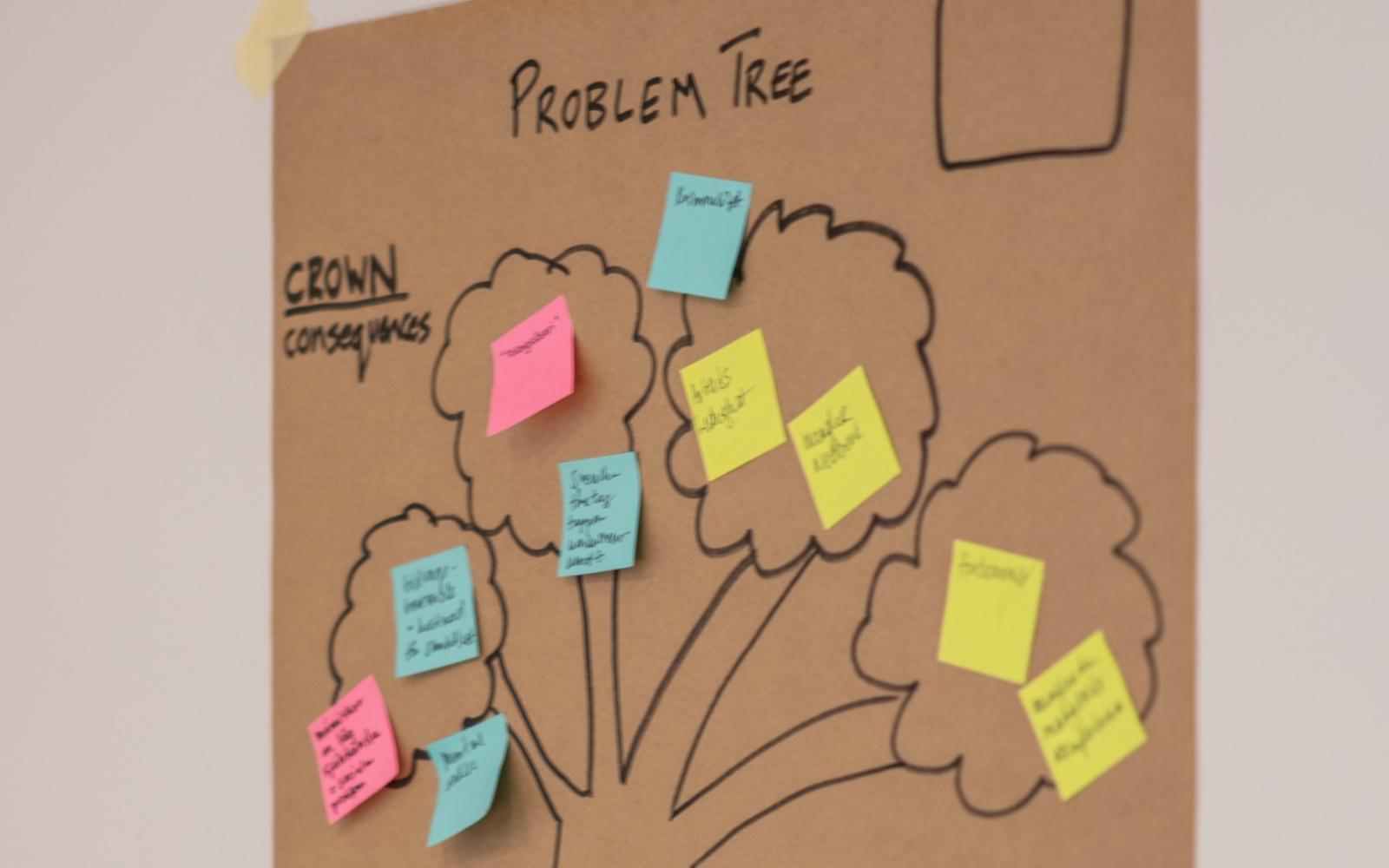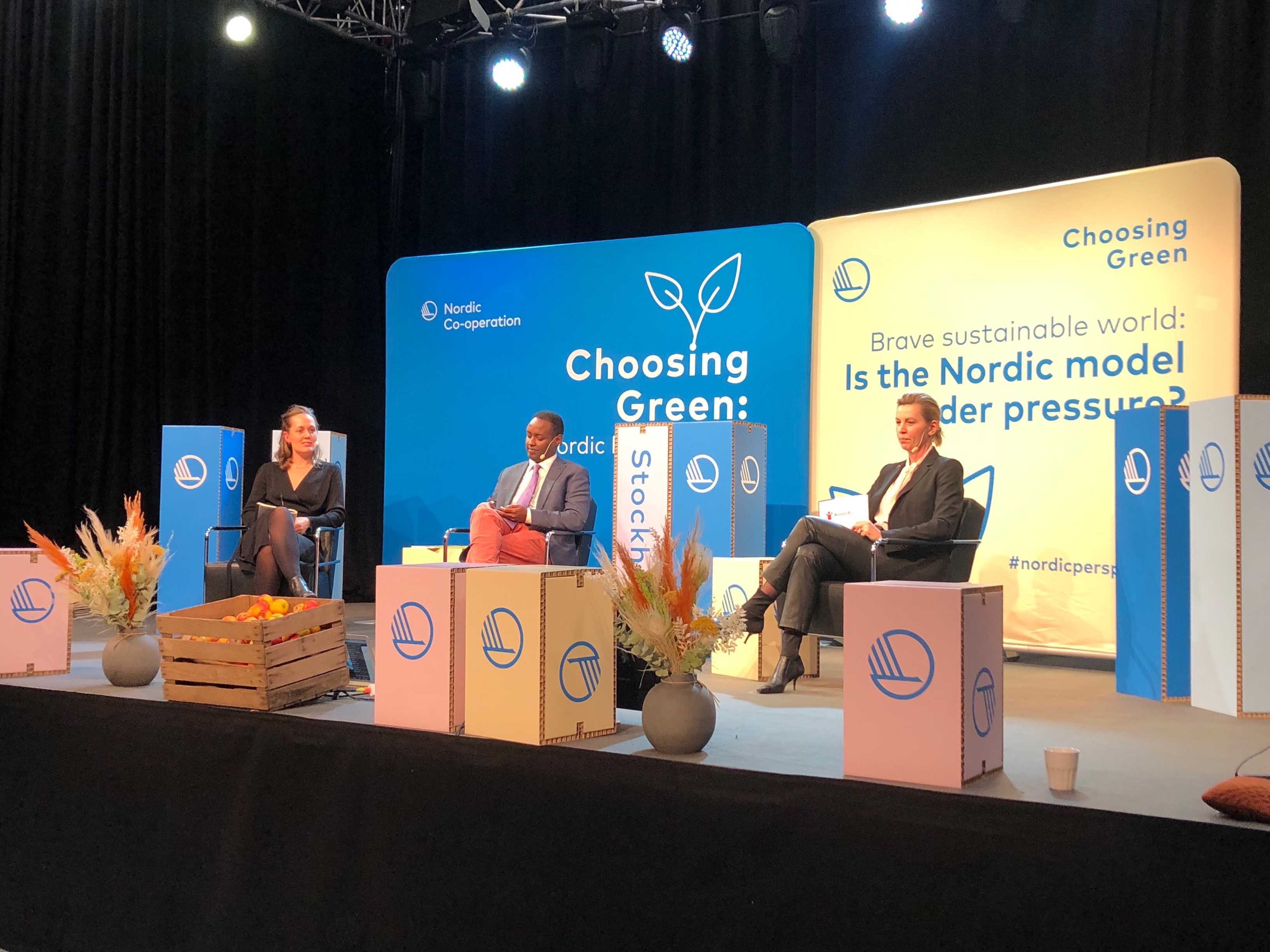Fixing what is still missing - Ecosystem for social entrepreneurs in Sweden

The Swedish ecosystem for social entrepreneurship has a potentially large role to play when it comes to speeding up and contributing to reach the Agenda 2030. The current crisis has revealed some weaknesses in this ecosystem, for instance the fact that the sector tends to be project, instead of impact driven, lacking funding for innovation and system change and creating more silos instead of coming together for impact, due to small resources and competition. However, the crisis has also enabled the ecosystem and the actors in it to see these challenges clearer and with that, decide to do something concrete about it. What we did before the crisis simply does no longer work or was not enough. We’ve seen some promising signs of this in the ecosystem here in Sweden with a stronger than ever willingness to work more together for impact in a strategic way over time.

In this spirit, nine leaders from the Swedish ecosystem have written a debate article, published in Dagens Arena in November this year, to highlight the need to accelerate the development of the Social Entrepreneurship (SE) sector over the coming years. The article was written as an attempt to influence the Swedish government, as it is currently evaluating its support given to the SE-field since 2018. By then, the government mentioned the social entrepreneurship sector for the first time, making a symbolic investment of 150 MSEK. In this article, we argued why it is important to continue ensuring more governmental support and persist in transforming the sector into a mature market and enabling ecosystem for social entrepreneurs in Sweden.
According to the European Commission's report "Social enterprises and their ecosystems in Europe - Comparative synthesis", Sweden is behind Europe when it comes to creating favorable conditions for social enterprises. It is hard to understand why Sweden to some extent mistreats companies and organizations that have a primary goal to create a positive impact on society. Together we want to change this!
During this fall, Ashoka has been invited to attend some key conferences and meeting places held this fall for the social innovation sector, for example, the Social Innovation (SI) Summit in Malmö, (Sweden’s biggest event for social innovation on November 10-11th); the Nordic Council’s Day on “Leaving no one behind the crisis” (held on November 17th), Coompanion’s Entrepreneurship day in Stockholm (held on November 19th), in which we shared some of our insights and recommendations to decision-makers and the overall ecosystem.
At the SI-Summit, for instance, we presented the following recommendations for the sector to move forward after the crisis:
1. Rebuilding the "new" normal:
Social Entrepreneurs are uniquely positioned to represent and reconstruct the “New normal”
As leaders rethink and rebuild our societies, make sure you learn from Social Entrepreneurs, as they are biased to action, resilience and collaboration, as well as experts in bringing in the target groups into the design process.
2. Flexible funding instrument:
Now is the time for leaders to commit and invest in long-term impact in order to reach the SDG’s by 2030 - Continue funding:
do not end funding for existing programs, do not shift towards just COVID-19 related solutions. Long-term funding and efforts, not only short-term relief, will be essential to e.g. recover the economy.
3. Collaborating for system change
SEs and supporting intermediaries like Ashoka, see an opportunity to accelerate and move beyond direct service and towards system change (advocacy, multi-stakeholder collaborations, long-term partnerships with governments, etc.) to reach even more impact.
What’s next for our ecosystem work in Sweden/Nordics?
Following our own recommendations, we are proud to launch a few important ecosystem activities in 2021:

A) Announce our newly established partnership with Reach for Change to take the pulse of the Nordic SE-ecosystem through the project Nordic Changemaker Map in 2021.
And;
B) Play an active role in a consortium/alliance of Swedish ecosystem supporters to work more strategically towards the SDG and collaborate on closing some of the current gaps in the market, together with SE-Forum, Reach for Change, Coompanion, SoPact, Inkludera, Vinnova and others.
If you are interested in learning more about our ecosystem work during the fall 2019-spring/summer 2020, you can read more about it in our newly released impact report. As a preview, here follows a short recap from FY20’s impact report on the ecosystem, focusing on Sweden:
PANELS, AWARDS & WORKSHOPS
Ashoka was part of several panels and workshops such as, for instance:
-
Reach for Change selection panel for new Change Leaders (Oct 2019)
-
A panel about Ashoka’s partnership with IKEA Social Entrepreneurship at the Social Innovation Summit 2019 to share best practices. (Nov 2019)
-
Part of the Hack the Crisis Sweden in April 2020 to evaluate community led social innovation as a response to the Covid-19 pandemic - 7000 hackers were registered and produced around 500 solutions during that weekend. (April 2020)
KEYNOTE SPEECHES & MEDIA
Ashoka gave several keynote speeches, for example on:
-
“The importance of cultivating Changemaker skills” during Coompanion’s annual Social Entrepreneurship (SE) conference in September, together with the winner of Young Changemaker of the Year in Sweden (Nov 2019)
-
“The value of Changemaking” insights from 10 years of impact in the Swedish SE-field at the Social Innovation Summit 2019 (Nov 2019)
ADVISORY EXPERTS GROUPS
-
Ashoka was part of a policy workshop with Tillväxtverket on How to enhance the definition of social enterprises and how to best support social enterprises in Sweden. (summer 2020)
-
We were also part of a working group appointed by Vinnova, to analyze their investment strategy ahead for the social innovation field and its intermediaries (summer 2020)